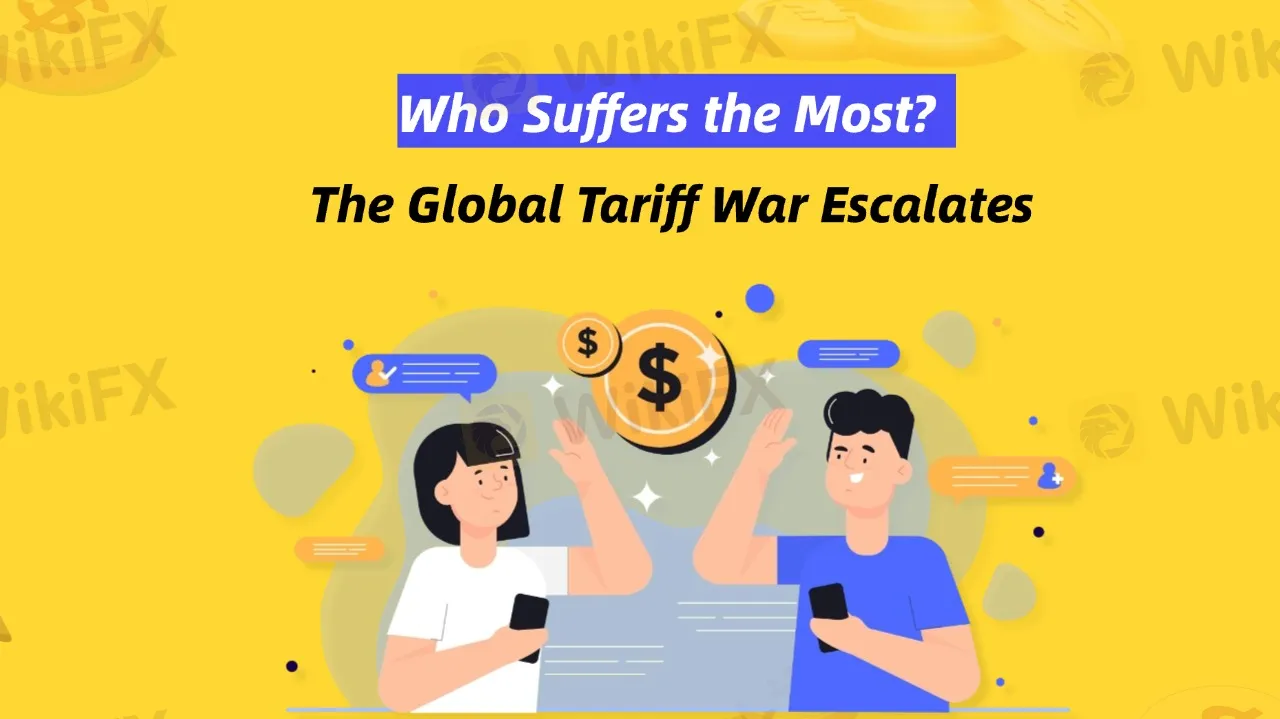简体中文
繁體中文
English
Pусский
日本語
ภาษาไทย
Tiếng Việt
Bahasa Indonesia
Español
हिन्दी
Filippiiniläinen
Français
Deutsch
Português
Türkçe
한국어
العربية
The Global Tariff War Escalates: Who Suffers the Most?
Abstract:The global trade war is intensifying as countries continue to raise tariffs, aiming to protect their own economies while creating greater market uncertainty. In this tit-for-tat game, who is truly bearing the brunt?

The U.S. government has once again wielded the tariff weapon, imposing a 25% tariff on imported steel and aluminum products starting March 12, affecting $151 billion in global trade. In response, the European Union swiftly announced retaliatory tariffs on $26 billion worth of American goods, while Canada imposed tariffs on $29.8 billion of U.S. imports.
These tariffs cover a wide range of products, from food and machinery to everyday consumer goods. Meanwhile, China has also escalated its countermeasures, imposing tariffs of 10% to 15% on 740 types of U.S. imports, including wheat, corn, and liquefied natural gas. As countries continue to take action, global trade tensions are mounting, fueling uncertainty across financial markets.
Although no country wants a full-scale confrontation with the U.S., they have little choice but to respond to the Trump administrations aggressive trade policies. The latest U.S. tariff hikes not only contradict its own goal of curbing inflation but also severely impact domestic businesses, with major automakers expected to see a 4% decline in profits. In retaliation, the EU and Canada have strategically targeted industries where the U.S. is most vulnerable, aiming to minimize costs for their own consumers while maximizing economic pressure on the U.S.
Furthermore, the evolving global trade landscape has forced governments to strike a delicate balance between protecting national interests and maintaining trade stability, leaving them no option but to continuously adjust their strategies to stay competitive.
Challenges for Investors
In the midst of this tariff war, global investors are facing unprecedented uncertainty. Markets are concerned that continued retaliatory measures could slow economic growth, heighten stock market volatility, and lower corporate earnings expectations. U.S. businesses are grappling with rising production costs and declining international demand, while companies in Europe, Canada, and China are also feeling the strain.
Additionally, the instability of global supply chains is further exacerbating the situation. Many analysts believe that if trade tensions continue to escalate, central banks may be forced to intervene with new policies, adding yet another layer of unpredictability. Investors must closely monitor trade developments and adjust their portfolios accordingly to mitigate potential risks.

Disclaimer:
The views in this article only represent the author's personal views, and do not constitute investment advice on this platform. This platform does not guarantee the accuracy, completeness and timeliness of the information in the article, and will not be liable for any loss caused by the use of or reliance on the information in the article.
Read more

Why Trade Agreements Matter to Nations
In today’s interconnected world, trade agreements serve as the foundation for stable and predictable international commerce.

Trade Fights Are Heating Up—What Happens Next?
Global financial markets have become increasingly reactive to even minor developments in international trade talks.

Juno Markets Upgrades to FYNXT PAMM
Juno Markets has successfully upgraded its managed account infrastructure by integrating FYNXT’s Percent Allocation Management Module (PAMM) system.

Italy’s CONSOB Blocks Sites of ITradingFX and NEX TRADE in Latest Crackdown
Italy’s Companies and Exchange Commission (CONSOB) has ordered Internet service providers to block access to nine unauthorized investment websites, including “ITradingFX” and “NEX TRADE,” as part of its ongoing effort to curb abusive financial services Consob.
WikiFX Broker
Latest News
eXch Exchange to Shut Down on May 1 Following Laundering Allegations
Think Scams Won’t Happen to You? That’s Exactly What Scammers Count On
Beware of Gold Bar Investment Scams: Rising Threats
Over $4 Billion Laundered Through Crypto Scams in Paraguay
Currency Calculator


